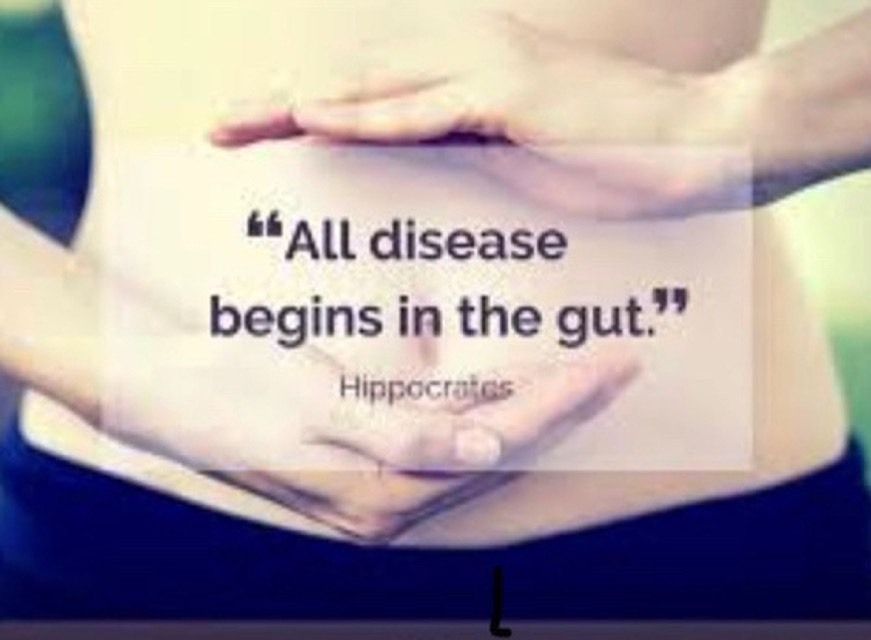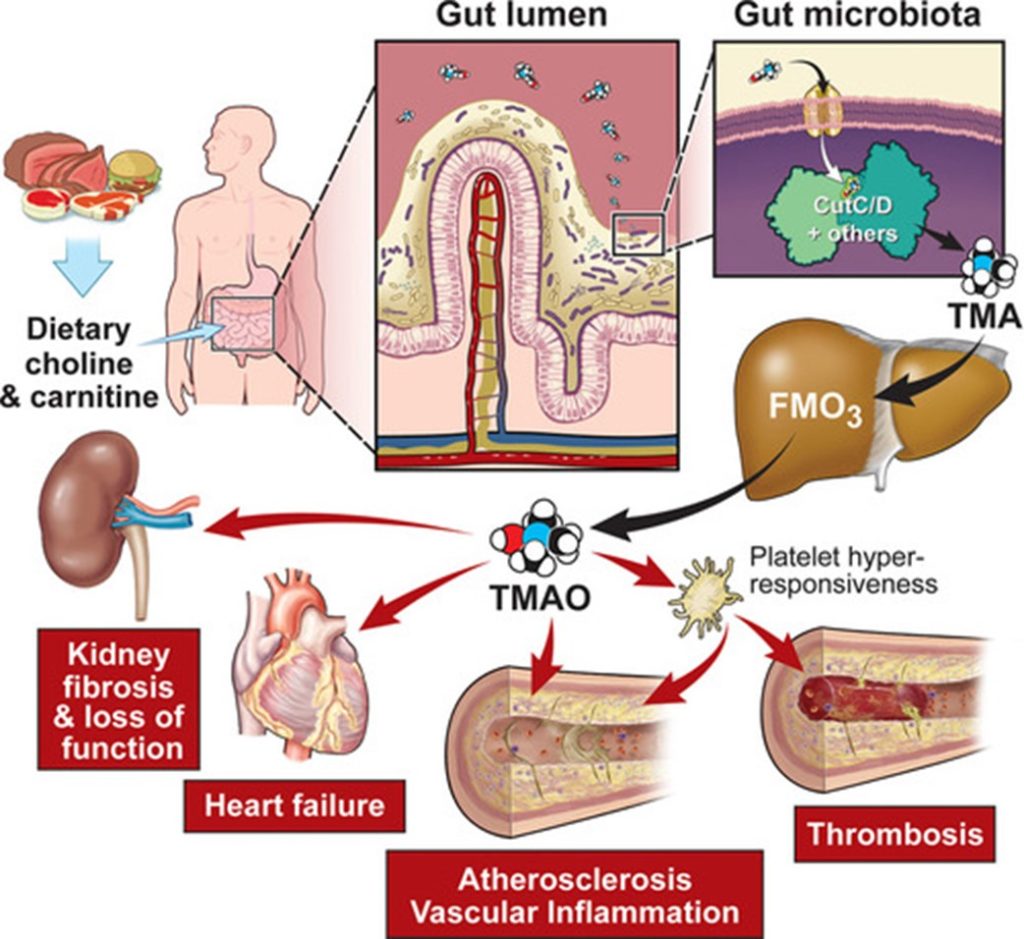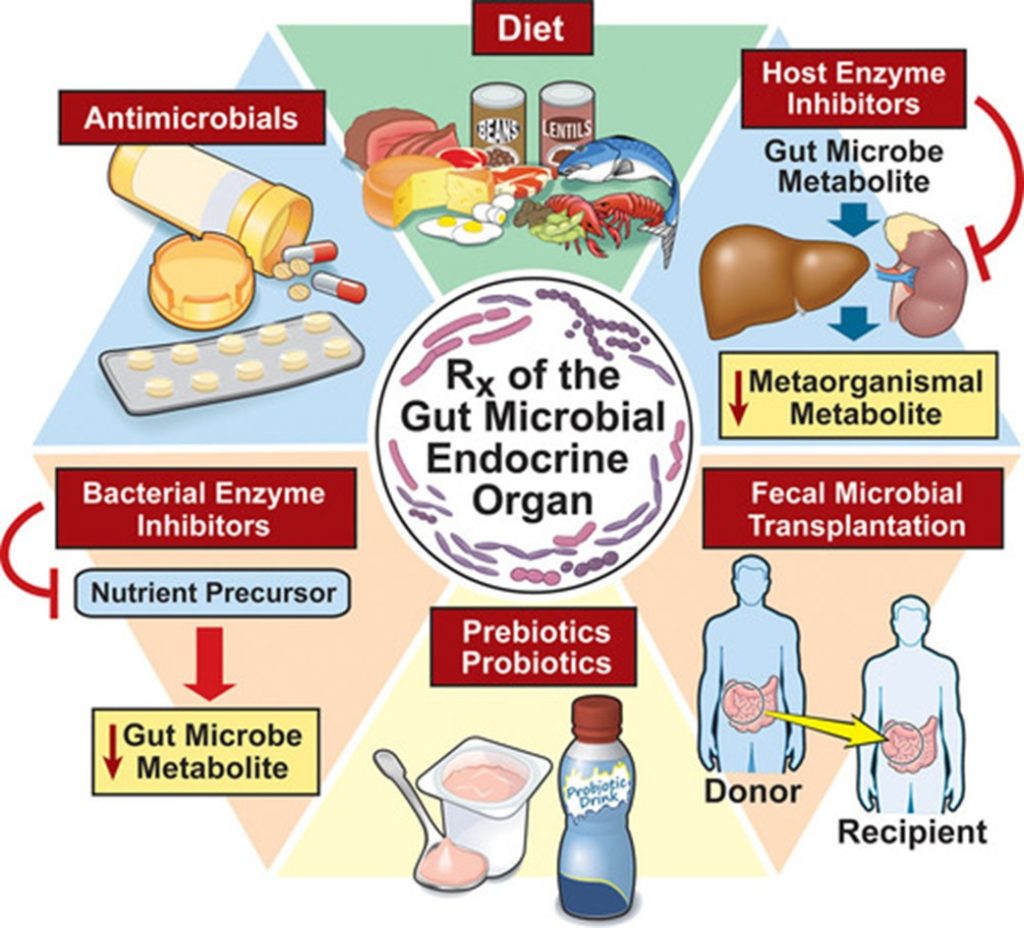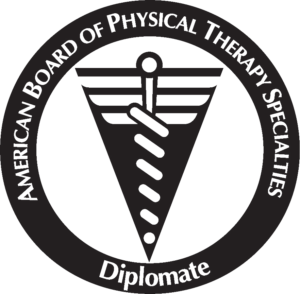Toxins cause a ton of problems in our bodies. When our body is hit with…

From your gut to your heart
There is more and more research coming every week, it seems, on the importance of the gut microbiome—all of the good little bacteria that help to keep our tummies happy, our brains focused, and our immune system in check.
More recently, there has been some really great research showing the connection between gut microbiome health and heart health! Good reason to keep drinking that kombucha!
The researchers at Cleveland and Mayo clinics found that people with cardiovascular disease (CVD) had a very different gut biome than people who did not have CVD. Part of the difference was the lack of bacterial diversity in the guts of people with CVD. Interestingly, but maybe not surprising, the gut biome of people with CVD was similar to people who have obesity, type 2 diabetes, dyslipidemia, and high blood pressure.
It is estimated that there are 38 TRILLION bacteria in our gut. If those bacteria are not healthy, that can lead to an increase in inflammation. The inflammation can leach into our blood streams from the gut and cause changes in the blood vessels leading to arterial plaque and atherosclerosis.
Since finding this link between an unhealthy microbiome and heart disease, researchers have been looking for a marker to assess heart risk based on gut health. One marker that is showing a lot of promise is Trimethylanine-N-oxide (TMAO). People who had the TMAO marker had a 62% increase in having a cardiac event and of those, a 63% increase in risk of death. This marker has been shown to occur prior to clinically significant changes in lipids or triglycerides.

The good news in all this? A change in diet to support our little bacterial friends decreases the TMAO marker along with a decrease in arterial plaque. The change in diet should include a mix of prebiotics (which helps to promote the growth of good bacteria) and probiotics (which contain good bacteria to repopulate the gut).

Probiotics include fermented foods such as:
- Sauerkraut
- Kefir
- Kimchi
- Yogurt
- Kombucha
- Miso
- Refrigerated pickles
- Tempeh
Prebiotics are found in most plant based foods. They have resistant starches that are basically carbohydrates that are not digested in the small intestine and act as bacteria food in the large intestine. Here are just a few of the many, many options for prebiotics:
- Asparagus
- Leeks
- Sweet potato
- Flax seed
- Bananas
- Garlic
- Onion
- Apples
- Steel cut oats
Other ways to help keep our gut friends healthy are to avoid processed foods, refined carbs, extra sugars and fats.
If you are struggling to stay active, keep on track with a healthy diet and lifestyle, we are here to help. Addressing issues that affect your pelvic health also can help your feel motivated to address other lifestyle factors, and our therapists are integrative providers who will help guide you toward a healthy lifestyle!




